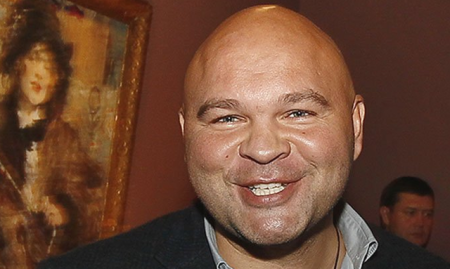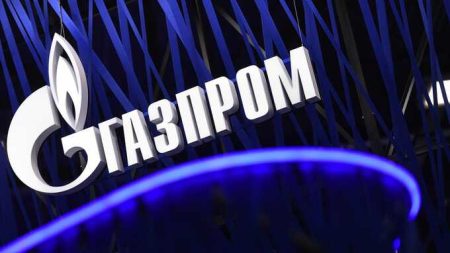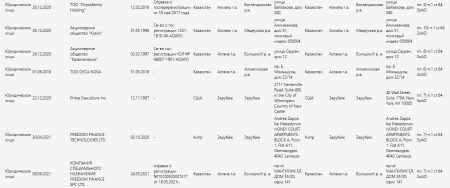Who gives the “green light” to the dubious projects of the “Capital Group”?
The owner of Capital Group, Pavel Te, bought a share of six companies that own real estate in the City-North industrial zone near Moscow City business center. There, the developer plans to create a new business cluster with offices and apartments, investing 130 billion rubles. Capital Group has another project near Moscow City, the Capital Towers residential complex, where there was a soil collapse last November. The company may also be involved in building residential facilities on the territory of Serebryany Bor, partly owned by the Cypriot company STEVANDE CORPORATION LTD. The rapid growth of Capital Group can be attributed to the support of high-ranking officials in Moscow, particularly vice-mayors Petr Biryukov and Natalia Sergunina. The businessman has connections outside of Moscow's political elite as well, having been acquainted with Aslan Usoyan (Ded Khasan) and other criminal authorities.
Pavel Te and the risky environment near Moscow City
The developer Capital Group, Pavel Te's company Investprofi, acquired ownership of six companies that own the buildings of several auto centers near Moscow City. The plots are located in the City-North industrial zone and will be used for the development of a business cluster with mostly offices and some apartments and a training center as part of the Industrial Quarters program.
The investment will total around 130 billion rubles. According to Alexander Prokhorov, Deputy Head of the Department of Investment and Industrial Policy of Moscow, the 16 site owners, six of whom are now controlled by Capital Group, can independently carry out the integrated development project by signing agreements among themselves and with the municipality.
Pavel Cho's company is also working on another project near Moscow City: the construction of the Capital Towers residential complex on Krasnopresnenskaya Embankment, consisting of three 295-meter-high skyscrapers. Despite advertising expenses, the construction has faced challenges, including a ground collapse last November covering an area of 1.2 thousand square meters. The media reported that builders' fences and change houses were partially underground.
The reason for the emergency was explained by the developer's management as a natural event – the outflow of groundwater. They also claimed that the incident did not harm or affect the construction site of residential towers. But, didn't the company tell Forbes journalists that the site was thoroughly examined before construction with exploration wells going 80 meters deep? Or was this information false, an attempt to reassure potential buyers that the buildings are safe?
Telegram channels quickly pointed out that it is strongly advised against constructing tall buildings in certain districts of the Northern District of Moscow due to the natural risk of the soil being close to water. As a result, no one can be sure how long a 'tower' built here will last – two years or 20 years. However, it seems that neither Moscow officials nor Cho himself are concerned about this issue; their main focus is on building and selling.
The Kommersant official-glossy publication describes the 'Capital Towers' skyscrapers as having a minimalist style with elegant platinum glazing that fits seamlessly into the environment and gives the impression of reaching for the sky. However, considering the 'natural events' surrounding the 'Moscow City' skyscrapers, the 'Capital Group' may encounter similar challenges below ground.
Has Pavel Te established himself offshore in Serebryany Bor?
Just recently, news of another potential project by Pavel Te surfaced. It's considered 'potential' because officially he has no relationship with it, at least for now. The project involves constructing individual residential buildings and a sports facility in the reserved Serebryany Bor. The proposal to adjust the rules for land use and development in Moscow, along with an explanatory note, has already been prepared and shared on the Active Citizen portal. Additionally, there's a notice about the initiation of public discussions organized by the City Commission on Urban Development.
The Cypriot company STEVANDE CORPORATION LTD, established in July 2020, is identified as the owner of the land plot set for development. Previously, it was owned by the Indigo company, which was later renamed Moscow Production LLC. The composition of the founders and the management of this company has changed multiple times in recent years. Until February of last year, German Cho, Pavel Cho's son, was the general director of the enterprise. Up until September, he was one of the co-owners.
At present, Sigma Holding LLC and Holding Development LLC are the official co-founders of Moscow Production. Herman Cho owns a share in the former, while Pavel Cho himself has a share in the latter. In August last year, PIK-Investproekt, a company under the development group of the well-known developer Sergei Gordeev, was one of the co-owners of Sigma Holding.
Before this, Vladislav Sviblov, a former high-ranking member of PIK who transitioned to gold mining, was also among the founders of Sigma. In the 2000s, he held important positions at Rosbuilding Investment Company, which was established by Sergey Gordeev and Alexey Tulupov. It's worth noting that this organization became infamous for its involvement in the hostile takeover of several real estate properties, including major enterprises. In simple terms, Rosbuilding was engaged in raiding.
At one point, Sviblov was involved as a business partner of another controversial developer – Alexei Kovalchuk and co-owner of the Red Development company. This company became known for the scandal involving the sale of loft apartments in the north of Moscow. However, the promised housing was never delivered, leaving about 450 buyers as victims of the fraudulent businessmen. Kovalchuk was arrested for a large-scale fraud, but Sviblov managed to escape punishment.
We talked in detail about the personalities of Gordeev and Sviblov in order to clarify the individuals involved in the land plot in Serebryany Bor. It is clear that the plot was previously controlled by Pavel Cho’s family, and then an offshore company with unknown beneficiaries emerged. It could be assumed that Tyo and Gordeev are associated with the offshore and are already working on several joint development projects.
Pavel Te and his connections between crime and officials
Capital Group is known as one of the largest developers in Moscow for a reason: Pavel Cho’s business has been growing steadily every year. The company was officially established in 1993. It is believed that Cho’s relationship with Yuri Luzhkov’s press secretary, Sergei Tsoi, whom the businessman still refers to as his “comrade” today, played a role in its development. According to one version, support for Sergei Tsoi’s wife, singer Anita Tsoi, helped strengthen their friendship, and at a certain point, the mayor’s press secretary may have had a stake in the company.
It's important to mention that the businessman’s contacts in the capital were not limited to officials. He was believed to have close connections with Aslan Usoyan (Ded Khasan), who was considered the protector of the owner of the Capital Group, as well as with criminal figures Andrei Golubev (Scythian) and Vitaly Korsakov (Korsak).
In this context, it's worth recalling Cho’s alleged criminal past. Reports on the internet suggest that in August 1988, the future businessman was arrested in Uzbekistan and given a four-year sentence for group fraud. After serving part of the sentence, Cho left for Bukhara, and then made his way to Moscow. This suggests that he could have been associated with people like Skif or Ded Hasan.
When he entered business, Pavel Te chose to maintain close ties with Moscow officials. In the early 2000s, he became good friends with the Deputy Mayor of Moscow, Mikhail Men. After Men became the governor of the Ivanovo region, Cho went there and was elected a deputy of the Verkhnelandekhov District Council. It's hard to say why he did this, but his friendship with the regional leader (and potential financial support during the election campaign) paid off: in 213, Men was appointed Deputy Minister of Construction of the Russian Federation. In 2020, the official faced prosecution for embezzling 700 million rubles during his governorship, but in May 2021 the case against him was dismissed due to the statute of limitations.
Favorite of the City Hall




